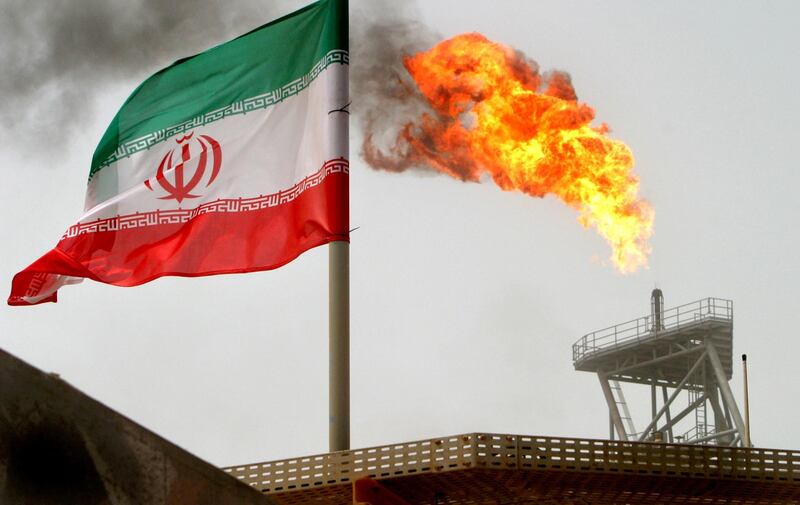Opec will “work together to fill any gaps” in the market as a result of US sanctions on Iran, even as it works to ensure there is no oversupply in the market, the UAE Energy Minister said on Sunday.
"Iran is a member and we will cater for whatever happened and whatever happens to any member state," Suhail Al Mazrouei, who holds Opec's presidency, said ahead of the organisation's Joint Ministerial Monitoring Committee session in Abu Dhabi.
"We are responsible as a group now as it could happen to any state, whether it’s sanctions, or anything, we will work together to fill in any gap.”
The minister acknowledged the waivers granted by the US administration to eight of Iran’s top crude buyers, but cautioned against the possibility of oversupply in the market, which has begun to become bearish.
The price of Brent fell to $69 per barrel on Friday amid rising US supply, ending a three-year high rally of around $80 for much of the summer.
"We will always advise the member countries to produce what is required to maintain the market balance," he added. "We’re not going to advise any of our member states to go and overproduce when the market does not need it. We don’t have an interest in building up inventories."
___________
Read more:
UAE 'will adhere to any Opec decision’
Iranian oil exports could halve in 2019 as US focuses on waivers
___________
The US administration under President Donald Trump granted China, India, Greece, Italy, Taiwan, Japan, Turkey and South Korea exemptions to continue imports from Iran, which will be monitored after a six-month period to evaluate if significant supply has been reduced.
Iran, one of the founding members of Opec, has had its energy exports shackled by US sanctions, which first came into effect under the Barack Obama administration in 2012, and now under the Trump administration.
The second wave of sanctions starting November 5 is targeted at restricting Tehran's ability to earn revenue from its oil receipts rather than completely restrict its ability to supply the market.
Iran, which exported around 1.6 million barrels per day ahead of the sanctions in October, can expect to see its cargoes halve to 800,000 bpd by mid-2019, according to consultancy Facts Global Energy.







